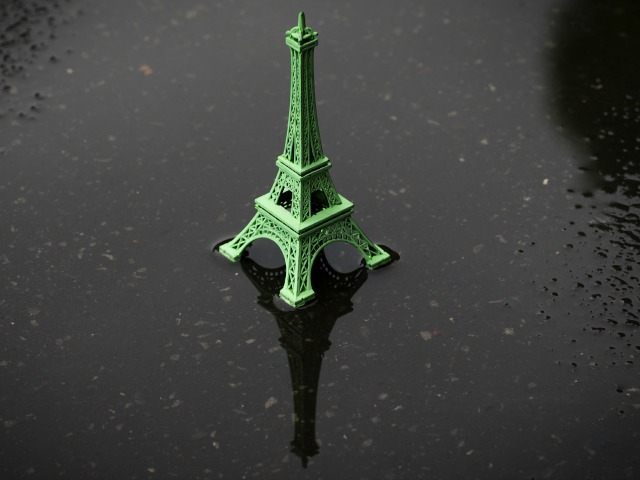A major Italian weekly magazine, L’Espresso, is attributing mass migrations into Europe from Syria, Afghanistan, Iraq and North Africa to global warming, warning that a legally binding agreement at the upcoming climate conference in Paris is necessary in order to preserve world peace.
The author of the piece, Mauro Magrini, says that it is important that the climate talks in Paris will continue so as not to grant a victory to the Islamist terrorists that attacked various points of the city on November 13, killing 130 civilians.
Next Monday, 138 world leaders including Barack Obama, Vladimir Putin and Xi Jinping will gather in Paris to declare their intentions regarding the “decarbonization” of their respective countries, and how they intend to reduce “dependence on fossil fuels that cause the warming of planet,” Magrini writes.
It is still unlikely that the 194 countries at the table of climate diplomacy will be able to reach unanimous agreement “to put a stop to the fever of the planet.” If they were to succeed, however, Paris would become “the theater of the largest peace conference ever convened in history,” he writes.
Trying to connect the dots between carbon emissions and world peace is a Herculean enterprise, but Magrini makes the attempt anyway, undaunted by the immense leaps of logic required in the operation.
Citing retired U.S. Navy Rear Admiral David Titley, Founding Director of the Center for Solutions to Weather and Climate Risk at Penn State University, Magrini writes: “Climate change is a serious national security issue that will exacerbate geopolitical tensions with local conflicts and mass migration.”
He then engages in a series of predictions common to climate change alarmists.
“The Arctic is warming faster than the rest of the planet and the Bering Strait will become navigable, assuming strategic importance comparable to that of the Strait of Hormuz,” through which passes Saudi oil, said Magrini.
Magrini also credits drought between 2006 and 2010, which he assumes is manmade, with triggering “mass migration” in Syria, a large part of Europe’s migration crisis.
To back up his theory, Magrini goes on to cite U.S. Secretary of State John Kerry:
“It’s not a coincidence that immediately prior to the civil war in Syria when the country experienced its worst drought on record, as many as 1.5 million people migrated from Syria’s farms to its cities, intensifying the political unrest that was just beginning to roil and boil in the region,” said Kerry.
Launching another prediction, Magrini writes that in the coming decades, “global warming will produce humanly unsustainable temperatures up to 140 degrees Fahrenheit in the Persian Gulf,” yielding a massive human exodus from the area and more migration.
Moreover, says Magrini, “in the coming decades sea levels are sure to rise.” Difficult to predict how much, he says, but perhaps as much as 23 feet.
All of this leads Magrini to conclude that there is a “close relationship” between climate security and peace, and therefore, a “strong multilateral agreement in Paris” is necessary for anyone who cares about world peace.
Summing up, if a warmer earth will result in mass migration, and if the earth is getting warmer, and if fossil fuel carbon emissions are the cause, and if reducing those emissions would have a material effect on climate—theories all based on indeterminate relationships of causality for past events and ridiculously unreliable models for predicting future events—then we should radically cap the combustion of fossil fuel, without any responsibility to provide a credible alternative, and whatever the measurable economic consequences would be for nations developed and undeveloped.
A 2012 United Nations report asserted that the earth’s cattle population actually produces more CO2 than automobiles, planes, and all other forms of transport combined. The cow pies they drop and the wind they break produce a third of the world’s twenty-times-more-detrimental methane emissions. As such, it might be no more arbitrary a move to outlaw McDonald’s to solve the alleged crisis.
One cannot help wonder whether with the urgent, proven danger from jihadist terrorists threatening the entire world at this critical moment in history, the Paris Climate Conference might just be one gigantic distraction that we can ill afford.
Follow Thomas D. Williams on Twitter @tdwilliamsrome

COMMENTS
Please let us know if you're having issues with commenting.